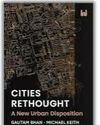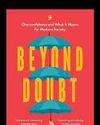
What inspired you to write a book on defeating dictators, and what sets your approach apart from other authors in the field?
My experience living and traveling to autocracies like Cambodia, Hungary, Singapore, and the United Arab Emirates inspired me to write this book. I wanted to explore why people are attracted to some form of autocracy, and how to counter that impulse. Most importantly, I wanted my book to offer solutions – rather than just detail the problem, as many other books have done.
How do you define a successful democratization strategy, and what key elements must be present to ensure its success?
Legitimacy is based on performance, meaning that democracies must perform to win public support. If Americans, Brits, Hungarians, and others do not feel like their democracies are delivering, they will be more open to new visions – like autocracy. That is in many ways what happened in Hungary. The key elements of democracy, in my view, are strong meritocracies, accountable systems, and a trustworthy government. The government’s ability to deliver on issues like human capital and infrastructure – which is critical to democracy – will flow from having a meritocratic, accountable, and trusted system.
You mention the importance of civil society organizations in creating a robust and sustainable democratic movement. Could you elaborate on how these organizations can be most effective in achieving their goals?
This story is from the {{IssueName}} edition of {{MagazineName}}.
Start your 7-day Magzter GOLD free trial to access thousands of curated premium stories, and 9,000+ magazines and newspapers.
Already a subscriber ? Sign In
This story is from the {{IssueName}} edition of {{MagazineName}}.
Start your 7-day Magzter GOLD free trial to access thousands of curated premium stories, and 9,000+ magazines and newspapers.
Already a subscriber? Sign In

Meditations for Mortals by Oliver Burkeman
It's all too simple to find your wallet much lighter in the name of \"wellbeing\" in the self-care field. Ads for crystal-infused water bottles, miracle powders, designer exercises, and a collection of self-help books you didn't even realize you needed start to appear as soon as you sign up for a meditation class.

Hug Yourself by Vinitha
Developing a positive self-image during this time is crucial for emotional wellbeing, as it helps teens embrace their uniqueness and build confidence that lasts into adulthood.

How AI Will Change Your Life by Patrick Dixon
Picture this: you're walking through a world where your fridge is smarter than you, your car knows where you're going before you do, and your coffee machine might just be your new therapist.

Gray Matters by Dr. Theodore Schwartz
Books written by doctors offer a unique blend of scientific expertise and realworld experience, making complex medical concepts more accessible to the general reader.

Cities Rethought by Gautam Bhan
\"Cities Rethought: A New Urban Disposition\" is an insightful exploration of urbanism by Gautam Bhan, Michael Keith, Susan Parnell, and Edgar Pieterse.

Chikkamma Tours Pvt. Ltd by Unmana
In the heart of Bengaluru, a murder mystery unfolds, and a fat lesbian has a chance to solve it—with a little help from her boss, and maybe a bit of romance.

Beyond Doubt by Vivek Nityananda
Behavioral biologist Vivek Nityananda’s latest book - \"Beyond Doubt: Overconfidence and What It Means for Modern Society\", delves into the nuanced and often misunderstood concept of overconfidence and its profound influence on modern society.

Bazaar Bites by Priya Bala and Jayanth Narayanan
India's street food scene is nothing short of a delicious love story, where every city has its own spicy romance brewing on the corner.

A Fire in the Sky by Sophie Jordan
Sophie Jordan’s \"A Fire in the Sky - A Novel: A Forbidden Marriage, Hidden Secrets, and a Kingdom on the Brink\", is a realm haunted by the shadows of dragons and witches serves as the backdrop for an epic tale of loyalty, betrayal, and forbidden desire.

7 Lessons of Karm Yoga by Richa Tilokani
Karm Yoga plays a crucial role in today's life by encouraging individuals to approach their daily actions with a selfless attitude, focusing on the act itself rather than the outcome, which can help combat the stress and attachment to results prevalent in modern society, leading to a more mindful and fulfilling lifestyle by integrating spirituality into everyday tasks like work, relationships, and community service; essentially, it promotes a sense of purpose and connection to something larger than oneself through dedicated action.